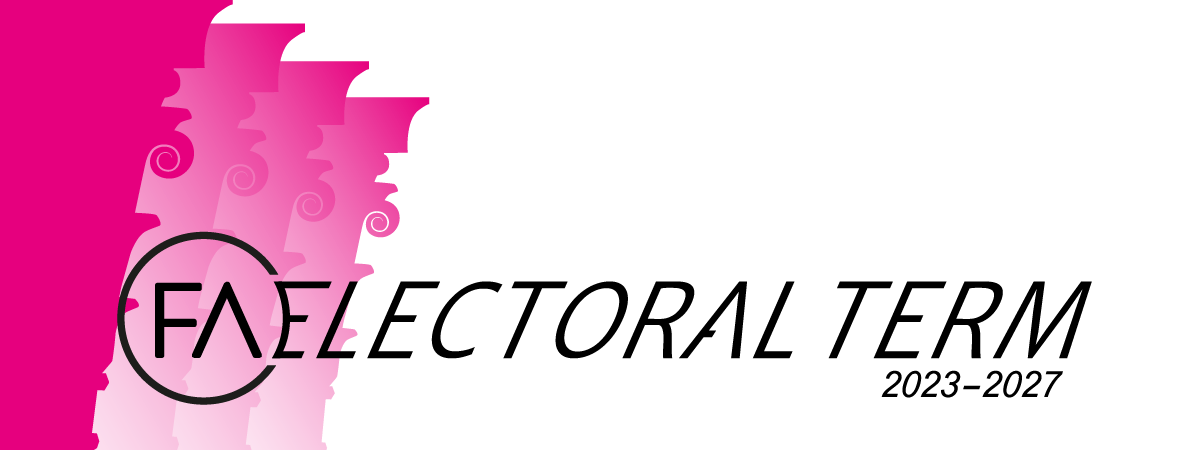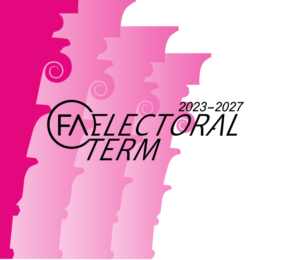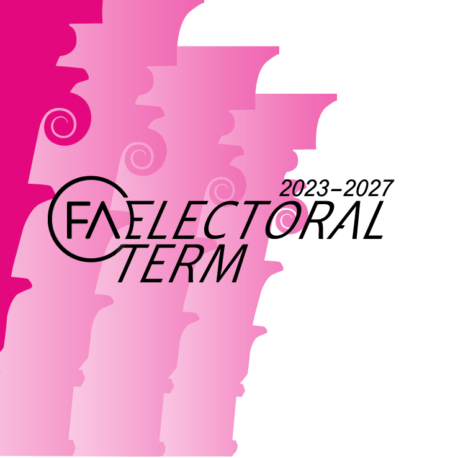
The financial sector’s responsible and important role as a major investor, lender to businesses and households and bearer of risks is highlighted in the current global political environment.
It is now particularly important to maintain the financial sector’s capacity to finance economic growth and employment. The regulation and taxation of the sector must not be tightened. Subjecting banks to more strict capital requirements or additional financial burden, for example, must be avoided.
The next government must commit to keeping financial sector regulation at a sensible and moderate level. The sector must not be encumbered with new national requirements.
The international political situation highlights the significance of EU membership as part of Finland’s political and economic identity. Finland must maintain its place at the heart of the Economic and Monetary Union.
Cybersecurity preparedness and the prevention of diverse threats requires seamless, close cooperation and information exchange between the public and private sectors.
We must ensure that Finland remains an attractive and safe target for investments.
SENSIBLE REGULATION – LESS IS MORE

Innovation requires freedom and controlled risk taking
- The financial sector speeds up growth and employment provided that its competitiveness is ensured.
- The freedom of financial sector businesses to compete, innovate and develop their operations efficiently and with the best interests of their customers and the society in mind must be secured without government regulations interfering in every area.
- Regulation must be kept on a sensible and moderate level, and additional national regulation must not impose further burden. Unmanageable regulation is inefficient. Deregulation should also be boldly considered as an option.
- The legislative process must be open and involve stakeholder groups at an early stage. The same applies for the planning and preparation of supervisory regulations. More resources must be assigned to legislative and regulatory processes.
- In high-quality drafting of legislation, it is vital to identify the impacts on the people and sectors it applies to. Impact assessments must be increased, and the assessment process must be transparent.
The EU should be a trendsetter in digitalisation and sustainability
- The EU must look after its own competitiveness in regulation. The aim must be on a single rulebook and a level playing field that takes different company forms into account.
- The Union needs to take on the role of a global trendsetter in digitalisation and the implementation of sustainability principles.
- EU regulation must be based on high-quality impact assessments that also take into account small countries and the characteristics of different markets. The principles of better regulation must be put into practice.
- Finland must promote regulation based on the Nordic market economy thinking and avoid excessive measures that extend regulation to areas typically beyond our regulatory culture.
- Finnish decision-makers and authorities must actively defend the interests of the Finnish financial sector and its customers in EU negotiations.
- The rules of the EU digital single market must be uniform and equal for all sectors and participants. Regulation must enable innovative business models.
More time for EU regulation
- Adequate time must be reserved for the implementation of regulation. In EU regulation, the entry into force must be aligned with the completion of supplementary lower-level regulation.
- Review clauses must be applied only when necessary, and the period between the adoption of the regulation and the review must be extended.
MODERATION IN TAXATION TO BOLSTER GROWTH

No obstacles for growth
- Predictable tax policy strengthens companies’ confidence to operate in Finland. Erratic changes and stricter corporate and investment taxation must be avoided.
No new taxes
- Banks and insurance companies have been among the biggest taxpayers in Finland for a long time. No new taxes that weaken the sector’s competitiveness and increase costs to customers should be implemented in the financial sector.
- Financial activity taxes would directly impact employees and the costs of labour. A special tax based on the total payroll would encourage companies to automate certain tasks or relocate them outside of Finland.
- The Financial Transaction Tax (FTT) must not be implemented in the EU. The tax would increase the costs of financial intermediation, and trade would move into markets and financial instruments that are outside the scope of the tax. The tax would reduce the public sector’s returns from earnings-related pension assets.
Enhancing investor appeal
- The society must encourage private ownership and risk-taking. Finland must remain an attractive target for international capital. The global markets’ reaction to taxation should not be underestimated.
- Debt conversion must be implemented. Companies’ creditors must be able to exchange part of the debt for shares or equity. Debt conversion would make the Finnish securities market more attractive. It would also offer a new start for troubled businesses.
MONEY TALKS GREEN

Using finance and investment to turn the tide towards sustainability
- Sustainable development and ambitious climate policy are prerequisites for wellbeing and sustainable growth.
- As a major investor, lender and bearer of insurance risk, the financial sector is in a key role in curbing climate change and halting biodiversity loss. We want to speed up the green transition.
- Sustainable finance steers capital to support sustainable development. Fundamentally, this capital consists of the funds of ordinary people as savers, investors and future pensioners.
Speeding up the green transition
- Open and readily available information supports risk management and helps steer funding. The financial sector considers ESG reporting essential. We also need national information on the taxonomy criteria.
- Regulation needs to ensure that the polluter pays. We need a real price for carbon emissions. The EU needs to set a binding carbon budget to help direct long-term investment.
- All regulation must be assessed in terms of its impact on the green and just transition. Innovations in financing should not be hindered, even unintentionally. Incentives work better than obligations.
FINLAND AT THE HEART OF THE EMU

Membership in the European Union is a key element of Finland’s political and economic identity.
- The Finnish financial sector has strongly supported Finland's EU and EMU membership and considers it important for Finland to keep an active role in developing and strengthening the European Union.
- The EMU membership, the single currency and the Banking Union form a stable operating environment that makes it important for Finland to stay close to the centre of the EMU.
- Emphasis must be placed on each member state’s responsibility for its own public finances and the role of market discipline. If common debt becomes a permanent phenomenon, there will be a need for mechanisms that enhance the effectiveness of market discipline and thereby compensate for the weakening effect that common debt has on it.
Decisions to expand risk sharing must be thoroughly deliberated
- Any decisions to expand risk sharing must be carefully deliberated and justified. The present problems of each member state’s banks must be solved and risks reduced before risk sharing is deepened in the Banking Union.
- If a European deposit insurance scheme is implemented, it must be based on liquidity support in the form of lending and have strict conditions.
- Decisions on the insurance sector’s guarantee schemes must be made on the national level, not through EU regulation.
DIGITALISATION TO SERVE CITIZENS AND BUSINESSES

Seamless public-private partnership
- Digitalisation must only be regulated when it is necessary for the security or stability of the society. The financial sector’s expertise must be utilised in legislative preparation.
- Finland must define a national digital strategy. The financial sector’s digitalisation will make the best progress when the authorities operate predictably.
- Cooperation between the public and private sectors must be enabled when digital service infrastructure is being built for citizens.
- Citizens and businesses must be offered the option of a digital service channel for every interaction with the authorities.
Digital identity and easier estate management
- A new digital identity must be adopted into widespread use. The digital identity card or mobile certificate must be independent of customer relationships and compatible with the European digital ID currently being prepared. There is also a need for a digital business identity.
- Public funds must be utilised to speed up the national project seeking to make it easier to manage the matters of a deceased family member. The matters of the deceased and the estate would be more conveniently managed with a centralised electronic service that provides a single access point to the relevant operators, including the Tax Administration, the Digital and Population Data Services Agency, and the banks and insurers.
DECENTRALISED SCHEME TO SECURE EARNINGS-RELATED PENSIONS

Pension assets should be used for pensions only
- Earnings-related pensions are a vital piece of Finnish social security. The best way to secure a functioning pensions scheme is through decentralised governance.
- A decentralised model based on private operators reduces risks, bolsters competition and ensures the appropriate use of pension assets solely for the payment of pensions.
- Regulation of the earnings-related pension scheme must be kept under national control.
Three points for developing the pension scheme with care
- The sustainability of pension financing must be guaranteed without risking the adequacy of pension coverage.
- Entrepreneurs must be ensured adequate pension coverage and social security. Entrepreneurs must sufficiently contribute to the financing of their pension coverage.
- Pension financing must be developed in a balanced way. The benefits and potential risks and their distribution upon different parties must be taken into account.
SOCIETY’S SERVICE COMMITMENT

Facilitating personal preparedness and responsibility
- Citizens’ voluntary financial preparedness and responsibility and the reciprocity of social security are a fundamental element of the Finnish welfare society.
- Access to equal, timely treatment and care and a uniform level of services can be substantially improved through public-private partnership.
- A uniform level of services across Finland must be secured with national-level steering.
- It is important for everyone to be aware of what public healthcare and welfare services include. What is the responsibility of the society and what falls on the individual citizen?
Enabling the supplementation of public cover, encouraging personal saving
- At every stage of life, it is paramount to supplement the public funding of welfare with private capital by using measures such as service vouchers and insurance.
- Citizens must be encouraged to save and invest to secure the supplementary financing that elderly care will require in the future. Statutory pension will cover basic expenses in retirement.
ENCOURAGING SAVING AND INVESTING

Promoting ownership and wealth creation
- It is important to promote ownership and wealth creation by activating retail investor participation in the capital market. Personal savings provide security for citizens and also improve the society’s carrying capacity.
- The taxation of investment products is now relatively consistent. We must encourage saving and investing – tightening the taxation of investments would erase the hard work done so far.
Voluntary pension saving must be revitalised
- During the peak years, 700,000 Finns had voluntary pension saving products. Legislative amendments suffocated this trend. The law must be revised so that private pension savings can be withdrawn already at retirement.
Preparing for both rainy and sunny days
- 1.3 million Finns invest in funds. The international competitiveness of Finnish investment funds must be further bolstered. This includes the further improvement of the fund unit register and the facilitation of the variable capital model (SICAV).
- Half a million Finns hold savings in investment or savings insurance plans. A broad range of diverse investment products benefits the savers and promotes households’ ownership and wealth creation.
- About 296,000 Finns have an equity savings account. The account’s maximum limit of EUR 50,000 should be doubled.
ESTABLISHING FINANCIAL AND DIGITAL LITERACY AS CIVIC SKILLS

Integrating digital literacy into financial literacy
- Good financial literacy reduces inequality and gives people better opportunities in life. More resources are needed in the teaching of economics during teacher training and vocational education.
- Digital skills are a necessity in modern life. We must invest especially in the digital and financial literacy of the elderly.
- Digital skills play a key role in preventing online crime. The prevention of cyber fraud requires more close-knit cooperation between the authorities and financial sector companies.
More flexibility for lifelong learning
- Labour market practices, working time legislation and the educational system must be modernised to match the needs of evolving work.
- Flexible conditions for lifelong learning must be established. In addition to on-the-job learning, there is a need for public training services that are working-life oriented and easily accessible.
- Universities and educational institutions must offer lifelong learning services in close cooperation with companies and the working life, and the financing model must also support this.
- Lifelong learning must be supported and encouraged with a public digital platform that collects data on everyone’s work experience, education, training and competencies in a single service that also provides access to further training options and job openings.
Still have questions?
|Contact FFI experts









